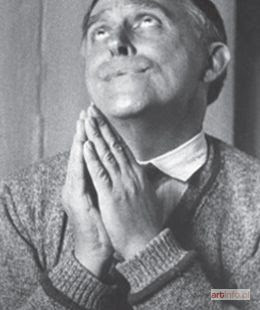"The Witkiewicz Reader" Edited by Daniel Gerould (Northwestern University Press)
There is the joy of going to a used bookstore, for instance, Alias East, on Glendale Blvd. and picking up a totally unknown author and his book. Stanisław Ignacy Witkiewiez, or better known in his home country of Poland, as Witkacy. "The Witkiewicz Reader" is an anthology of his various writings from 1914 to the date of his death (by suicide) in 1939. He lived through tough times in his country or part of that world, and his writings reflect, not realistically, but at least spiritually or aesthetically, the period that he lived in. Which, looking back, was not so good.

He was not only a writer, but also painter, commercial portrait painter, philosopher, playwright, photographer and a huge experimenter in narcotics. In that sense of structure he sort of resembles Artaud, but without the madness, but clearly with the emotional attachment to his life and the things that went wrong in that life as well. Personally I don't find his fiction that interesting, but on the other hand, his essay on drugs is very interesting, as well as his letters to a friend. He is probably one of the first 'aesthetic' writer to focus on the effects of peyote and cocaine. Almost scientifically minded, but.... well, he's an artist, so that aspect totally rears its head in. In that specific sense, he resembles William S. Burroughs - in fact, if he lived just a tad longer, I think he would be a Beat.

Reading a best of, which is basically selections of that author's writings, one gets a pretty good snapshot of one's work. I'm curious to actually read an entire novel by him. If that's possible, and in English. Daniel Gerald, did a good job in choosing the material and he also places his life in chronicle time - so it's very much of a biography as well.
